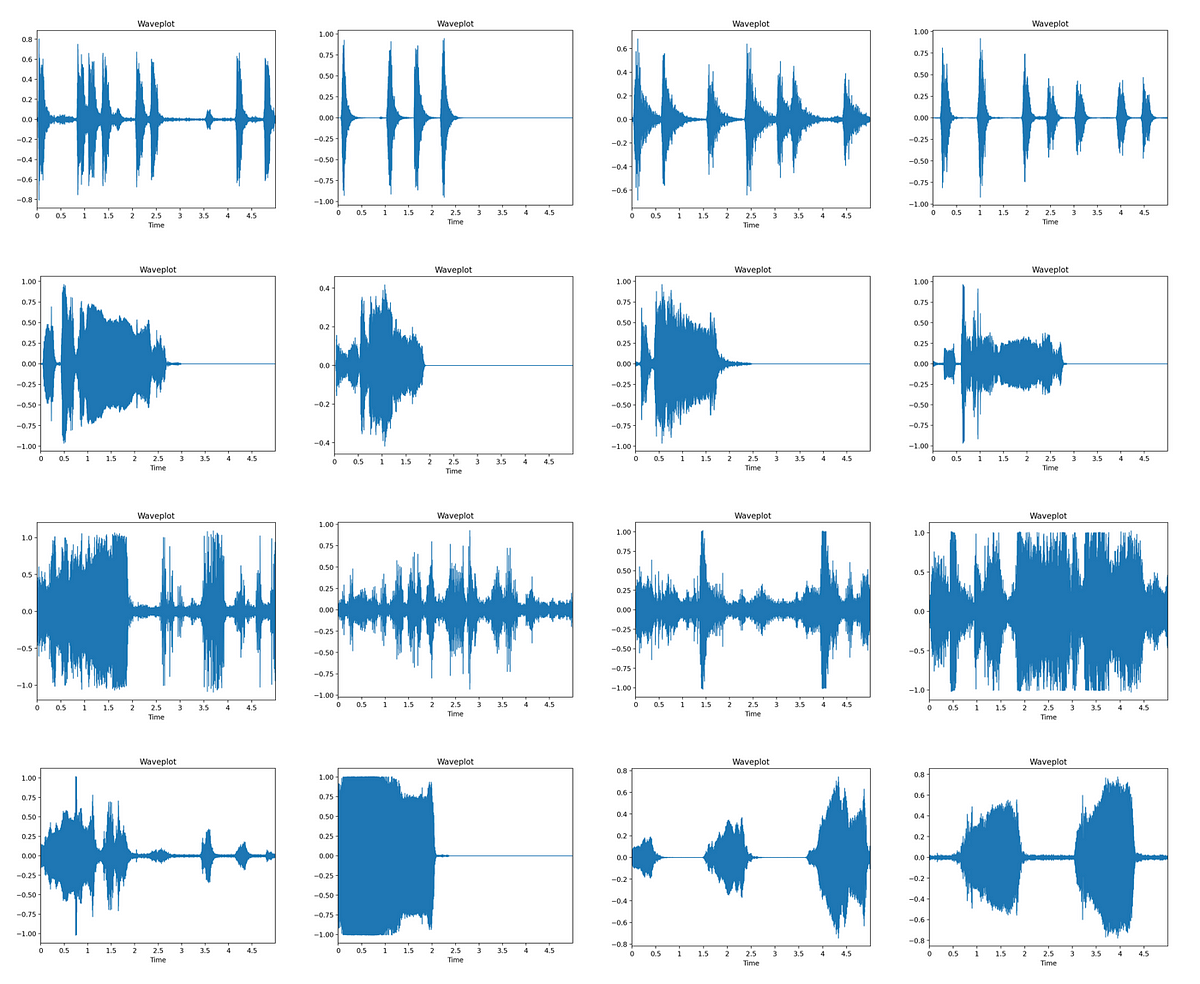Exploring Audio Datasets with Python

Original Source Here
Exploring Audio Datasets with Python
Create a simple GUI to browse large datasets
Image datasets can be explored easily. Even if we have hundreds of images, we can scroll through directories and glance at the data. This way, we can quickly notice interesting properties: Colours, locations, time of the day. However, would we use the same strategy for audio datasets, we would not get far. Instead, we had to listen or skip through a single file at a time. For a large number of samples, this approach is prohibitive.
A solution is to visualize the audio files. Rather than listening to the samples sequentially, we plot different characteristics. The most basic plot is the waveform, which is shown in this example:
We can see that the samples in the first row all show similar patterns. Also, for the second row, the sound seems to be concentrated in the beginning. Then, switching to a spectrogram representation, we can examine the samples further:
On the y-axis, we see the frequency, and on the x-axis, we see the time. Finally, the colour holds the last information: The brighter, the more energy the area has. For our second row, the energy seems to be concentrated in the first 2, 3 seconds.
Then, in the next step, we take one sample and visualize several transformations at the same time, as shown below:
Doing all this manually over and over is tedious. But, thanks to python and streamlit, we can develop a simple GUI, which is rendered in the browser. You can try it live here.
AI/ML
Trending AI/ML Article Identified & Digested via Granola by Ramsey Elbasheer; a Machine-Driven RSS Bot
via WordPress https://ramseyelbasheer.io/2021/07/20/exploring-audio-datasets-with-python/